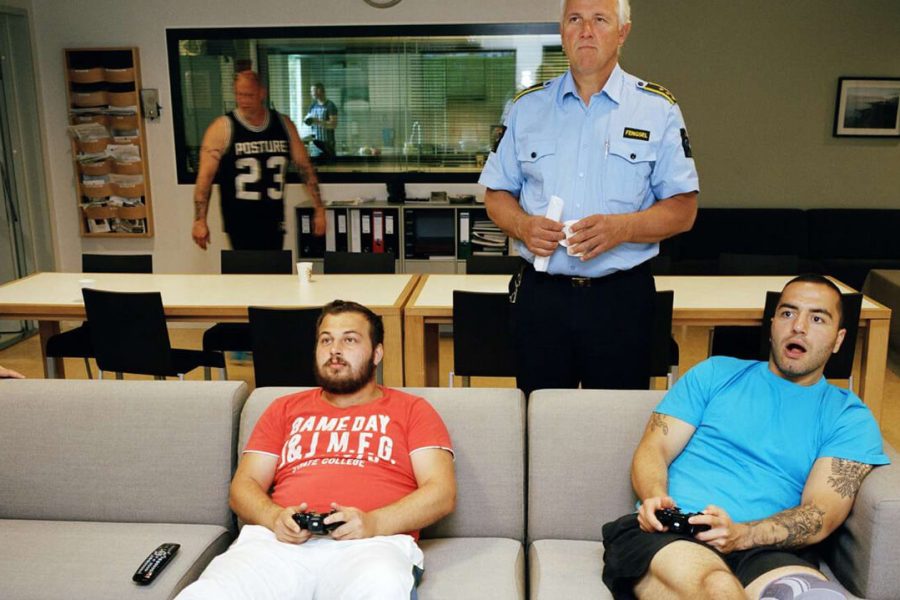So much to do, so little time. In a world where everything moves at a fast pace, people don’t want to wait more than 5 seconds. Why does a modern person’s life seem like they have a million things to do? There’s an email to answer, a project to finish, time to spend with friends and family (if there’s time left).
The more work we have, the easier it is to get into a frantic state. Busy people often work on tasks they think they need to do, but are actually counterproductive. I need to pinpoint these habits in my own life. Here are a few things to stop doing if you want to get more done.
1. Trying to do everything at once

Have you ever seen people who are completely exhausted? They are pulling their hair, running from place to place, and barely have time to breathe. They are trying to do everything and panicking. I used to wonder: how can such people do so much? Until I saw their results. Then I realized that trying to do everything at once prevents you from getting good results. Trying to do everything is an indicator of a lack of determination, not ambition. So if you want to become an expert in something, it means saying no to other opportunities - at least for now. For example, tennis player Serena Williams is a highly ranked tennis player and has her own clothing line. But at first, she focused all her energy on becoming the best tennis player. She came to the fashion business later.
Become the best in one area, then another.
2. Control everything down to the smallest detail

Micromanagement is a problem for perfectionists who need everything done their way. They tend to hover over someone while they work and try to do things that someone else would do easily. The worst part about micromanaging is that others feel stifled and resentful of not being respected.
Instead of looking over every detail, try to focus more on the big picture. Let go of control, give others the power to make decisions (to some extent). This will be better for your health and well-being. When you learn to let go of things, you will find that you are able to accomplish more of your goals.
3. Improvise on the fly

I remember back in school, when we had to prepare presentations for the class, there was always someone who would say, “I'll just improvise!"This person is probably not at the top of the class. Even if he was, he is not able to push others. Goal-oriented people achieve high results more often than inactive people. They constantly prepare and practice, so that when the time comes, their performance will be flawless. I like to prepare for the next day by using the page-turning technique. It helps to stay organized and calm, even when everyone else is getting restless.
If you want to succeed, don't improvise. Practice.
4. Not giving yourself a break

A common misconception is that successful people work non-stop all day and night. They have no time for fun or play. Nothing could be further from the truth. Creative people and innovators need time off to explore. Taking time to rest allows them to reflect on the obstacles they face and see them from a different perspective. Arianna Huffington says that sleep is the secret to success. We often think that not having time to rest is a badge of honor that we wear with pride. Instead, we should think about how more sleep helps us be more energized, happier, and more productive. If you want to feel refreshed and creative, try taking a break from work. The most productive people do not work 24/7, but rather follow the 52/17 formula. This means that for every 52 minutes of intense, focused work, there should be a 17-minute break.
This recommendation takes into account the time during which a person is able to concentrate and achieve results. Then attentiveness decreases, which provokes mistakes, inattention and procrastination. Yes, yes, most often it occurs only to give you the opportunity to rest.
5. Skipping lunch

A friend of mine once bragged to me that she worked 18 hours a day, non-stop. She said that she often forgot to eat because she was busy. On the other hand, another friend sleeps a lot and cooks for himself. He has more free time and energy for hobbies. Guess who got burned out? Skipping meals lowers your energy and concentration, and you get less work done. This increases cravings for food, which we eat unhealthy food and sweets. I find that preparing my lunch in advance helps me organize my day, I don’t look for unhealthy food to quickly satisfy my hunger. And I no longer worry about what to eat.
6. Get up earlier
Authors of books on personal effectiveness often give this advice: if you start your day at least an hour earlier, you can get much more done! If you are an "early bird", then you probably wake up early anyway and do not experience any discomfort from this regime. But ambitious "owls" may suffer. After all, in any case, regardless of what time of day you are especially productive, it is unwise to compensate for work with sleep. At least because lovers of personal growth are always focused on how to squeeze more juice out of themselves (that is, productivity), and, alas, do not care at all about replenishing the resources spent on achievements: physical, emotional, time. And resources, alas, are exhaustible.

Even if you feel very productive now, years of living in a sleep-deprived mode, without proper rest and recovery, will lead to exhaustion. Chances are high that at 35 you will find yourself lying on the couch, wanting only one thing - for everyone to leave you alone. Forever.
7. There are "frogs"

Many people know Brian Tracy's method called "eat the frog." People tend to put off the most difficult or unpleasant tasks until the last minute. So he advises doing them first - so as not to waste time, solve the problem faster and do something more enjoyable.
And that seems like good advice. But the catch is that sometimes procrastination is a way to think through a problem, find missing information, and come up with a more elegant solution. If you rush, you can make a mistake that will take much longer to fix.
In general, business literature offers many life hacks that help you be faster, higher and stronger. Before you start practicing them, it is still worth evaluating how suitable they are for you, in this particular job.
8. Don't wait until the last minute
There is an opinion that an effective employee is supposed to plan his work so that the task is completed before the deadline or at least strictly by it.

Here I would like to say right away that managers and contractors can initially set unrealistic deadlines because “it’s really necessary!” and “it’s necessary yesterday!” But even under the most ideal conditions, gradualism and measuredness do not help everyone achieve excellent results. For example, according to the Myers-Briggs typology, people are mainly divided into two types according to the way they prepare decisions: those who prefer to calmly plan, study the situation in advance and systematize information. And those who are more inclined to act spontaneously, guided by circumstances. They are the ones who do everything at the last moment, but they cope brilliantly with their tasks. So if you belong to this type, it is useless to force yourself to plan, try to pretend to be an exemplary employee - this will take more effort, and the result may even be worse.
9. Using too many apps
The advent of gadgets and all sorts of applications would seem to make life easier. Surely, you can find programs in your phone for falling asleep correctly, planning meetings, learning foreign languages, making schedules, keeping household accounts and evaluating your own efficiency... But, most likely, you just waste more time: to study the often "crooked" and inconvenient interface, and then to download updates and enter data.

The truth is that any app can only be useful in one case: if you have a system. And when this app complements this system, and does not replace it.
No program will help you plan your time more effectively if you can't prioritize and try to do everything. It won't help you speak a foreign language if it only helps you study grammar. Just like an alarm clock won't help you wake up earlier if you went to bed late and are very tired.
10. Putting off household chores until later

What's the point of working hard if it leaves no time for life? Even in the most hellish rush, make sure that at least the minimum of household issues are resolved: bills are paid, dishes are washed, and laundry is done. In short, your home should not turn into a visual demonstration of how hard life is for its owner.
11. Get distracted by everything

There's no escaping outside irritants, but who said we should pay attention to them anyway? If someone calls you, writes you, or knocks on your door, it doesn't mean you have to immediately drop everything you were doing. There are breaks for everything that isn't related to work tasks.
12. Not having a goal

Turn your dreams into very specific and clearly formulated tasks. Until you do this, they will remain dreams, about the impossibility of which you can sigh well from time to time.
13. Having too many goals

On the other hand, you shouldn't plan more than you can actually accomplish. You won't be able to devote enough attention to each task anyway, so there's a high risk that the whole undertaking will go to waste. And after all, it's not the quantity that matters to us, but the quality, right?
14. Procrastinate

The longer we put something off, the less likely we are to ever get it done. Just believe me: it's better to finally do it and be happy than to put it off for the umpteenth time and suffer about it.
15. Not keeping track of expenses

People whose financial affairs are in disarray have absolutely no chance of a normal life. Controlling income and expenses is comparable in importance to taking care of your health, so don't neglect all this bookkeeping.
16. Wasting time on other people's problems

The only person who has complete and utter control over your life is you. Your time is your most valuable asset, so treat it with respect.
17. Giving up on something halfway

Break each task into several small stages. This approach will help you cope with even the most seemingly impossible tasks. Rule of thumb: the last 10% of work always takes 90% of effort, so take this into account when planning.
18. Don't admit mistakes

Denying your guilt or, even more so, shifting it onto someone else will not improve our lives in any way, nor will it help us achieve our goals. A mistake is always a lesson. Learn it and move on.
19. Strive for perfection

Oh yes, the notorious, mythical perfection. And we know that it simply does not exist in nature, but for some reason we strive again and again to do everything perfectly. A great way to occupy time that could be spent on more useful things.
20. Refusing to make decisions

Difficult decisions are called difficult for a reason. But if you don't make a choice, it will definitely be made for you, and there is no guarantee that you will like the result.












